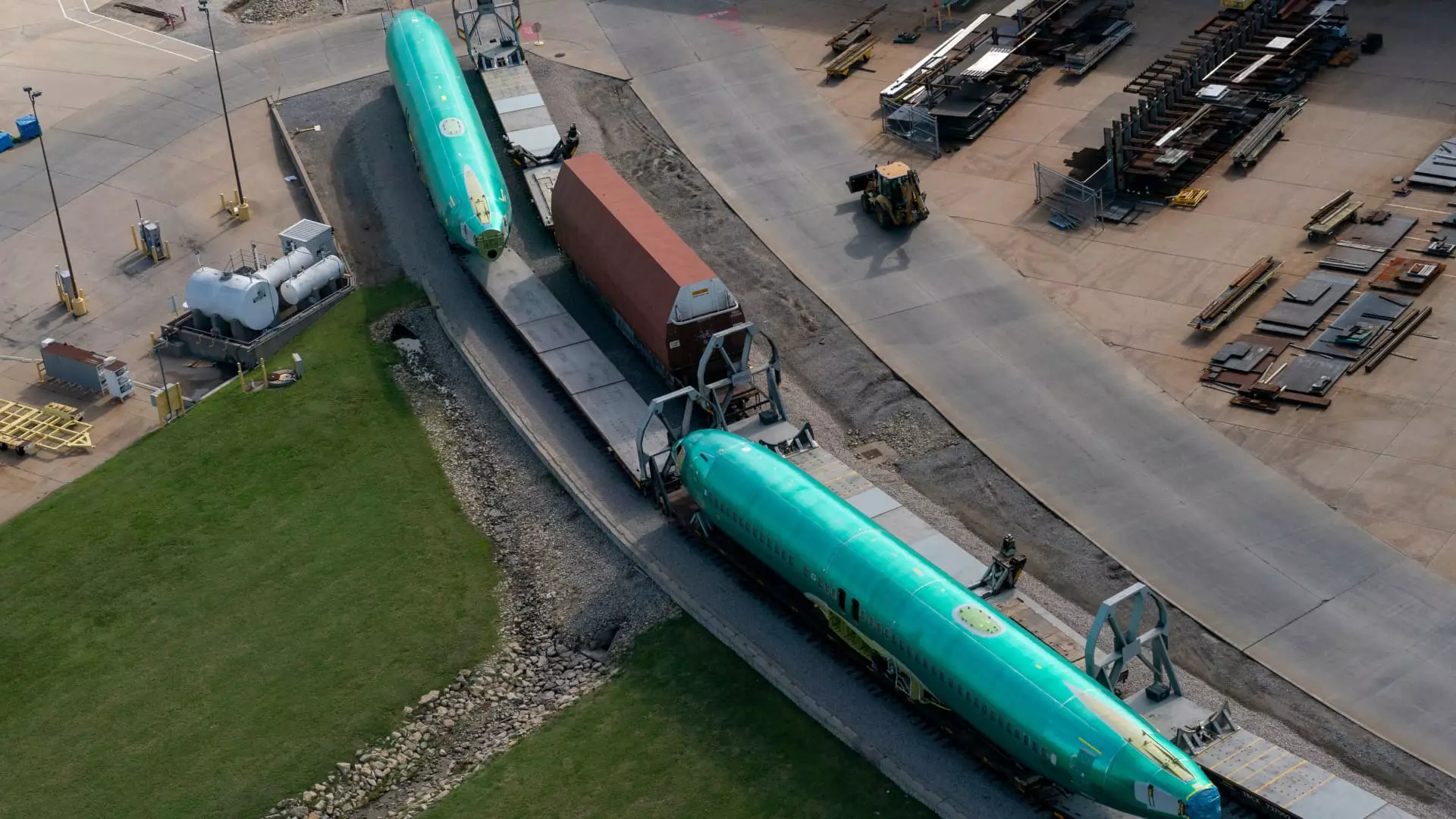The ongoing strike by Boeing machinists has created significant ripple effects within the aerospace industry, impacting companies such as Spirit AeroSystems. As relations between labor and management grow increasingly tenuous, Spirit AeroSystems is grappling with the possibility of extensive furloughs or layoffs that could affect hundreds of employees if the strike persists beyond its projected end date of November 25. With Boeing’s production lines largely halted due to the work stoppage, a darker landscape is emerging in this critical sector.
The machinists’ strike, now entering its sixth week, was propelled by a decisive 64% defeat of a newly proposed labor contract during a union vote. This rejection has left Boeing in a precarious position, halting production on numerous aircraft models, primarily in the Seattle region where the majority of the manufacturer’s workforce resides. Spirit AeroSystems, which supplies essential components like fuselages for the widely popular 737 Max, has already announced plans to furlough approximately 700 workers at its Wichita facilities. These furloughs of three weeks are a direct consequence of the production standstill, which is extending beyond what was initially anticipated.
As Spirit contemplates further workforce reductions, the company’s spokesman, Joe Buccino, emphasizes that no final decisions have been reached yet, signaling a cautious approach to the ongoing crisis. This potential for additional furloughs highlights the vulnerability of not only Spirit but the broader aerospace supply chain, which remains fragile in the wake of past economic pressures. In the recent years, suppliers have been reluctant to let go of their workforce after the painful layoffs that accompanied the downturn during the COVID-19 pandemic.
The ramifications of the Boeing strike extend beyond just Boeing and Spirit. Other aircraft manufacturers, such as Airbus, are also facing supply chain issues that stem from the current labor unrest. The struggle is exacerbated by a workforce that has been painstakingly rebuilt in the last few years, a delicate infrastructure that companies are now hesitant to dismantle a second time.
While the immediate impacts on employment are significant, the acquisition of Spirit by Boeing is also looming on the horizon, with the deal expected to finalize next year. This consolidation could change the dynamics of supplier relationships, potentially allowing for greater negotiation power and efficiency between the two companies. However, both companies need to resolve their internal conflicts first, and the newly appointed Boeing CEO Kelly Ortberg has indicated that settling disputes with the Seattle-area machinists is of utmost priority.
As the aerospace industry navigates through these turbulent times, the coming weeks will be pivotal. The decisions made now will have long-lasting consequences for the workforce, the supply chain, and ultimately, the sustainability of the industry as a whole.

Leave a Reply